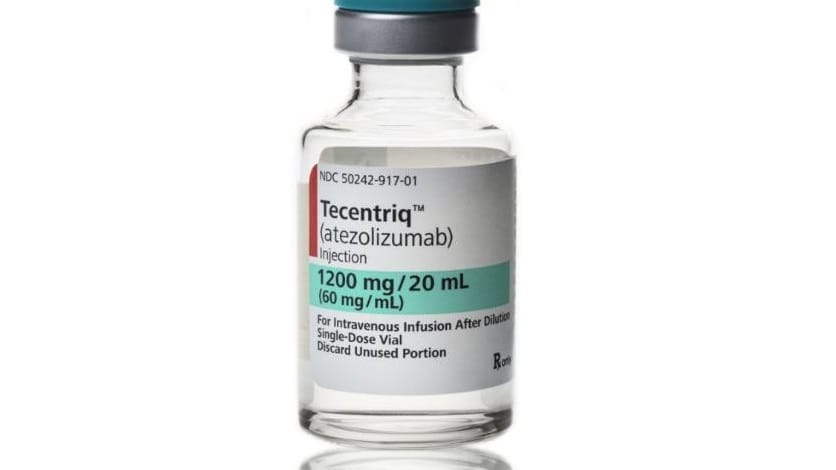
Fresh from having gained the first checkpoint inhibitor approval in triple negative breast cancer (TNBC) with Tecentriq, Roche has presented phase 1b data of a new combination that could further boost results in these patients.
The results of its investigational AKT-inhibitor ipatasertib added to Tecentriq and chemotherapy as a first-line treatment option demonstrated that the regimen achieved an overall response rate of 73%.
Responses were seen irrespective of biomarker status, and Roche is currently adding to this trial, enrolling patients in a second cohort that will allow the drugmaker to examine their biopsy material to assess treatment-related biomarker changes in TNBC patients who have progressed after at least one line of chemo.
“We are enthusiastic about the potential of this combination in triple-negative breast cancer, an aggressive type of breast cancer,” said Sandra Horning, MD, Roche’s chief medical officer and head of global product development.
“These early results support the contribution of ipatasertib to our combination treatment approach in TNBC and reinforce our vision to develop medicines that may benefit patients with this challenging disease.”
Roche says the addition of ipatasertib in the regimen may contribute to the reversal of T-cell-mediated immunotherapy resistance, which results from a loss of PTEN in tumour cells that in turn promotes immune resistance to PD-1 inhibitor therapies.
Ipatasertib is an oral, targeted drug that binds to all three isoforms of AKT, which blocks the PI3K/AKT signalling pathway and may prevent cancer cell growth and survival.
The molecule is being studied in tumours that are frequently found to have activation of the PI3K/AKT pathway, including breast and prostate cancers, and was discovered at Roche’s biotech arm Genentech in partnership with Array BioPharma.
“These results and the potential benefit that ipatasertib plus the Tecentriq/taxane combination may bring to patients are encouraging and add to [our] development programme in triple-negative breast cancer,” said Roche.
Tecentriq’s FDA approval in triple negative breast cancer will help it expand in a market dominated by Merck & Co’s Keytruda. While Roche has sprung into the lead in the therapy area, Merck & Co is expecting results of two TNBC studies to emerge soon.
Keynote-552 is investigating Keytruda in combination with different chemotherapy regimens in the neoadjuvant setting while Keynote-119 is testing the drug as a monotherapy.
If all goes well in these trials, particularly Keynote-552, Merck & Co could find itself seizing a significant chunk of the market, with Evercore analysts predicting a $2bn opportunity if it can get approval in this area.




